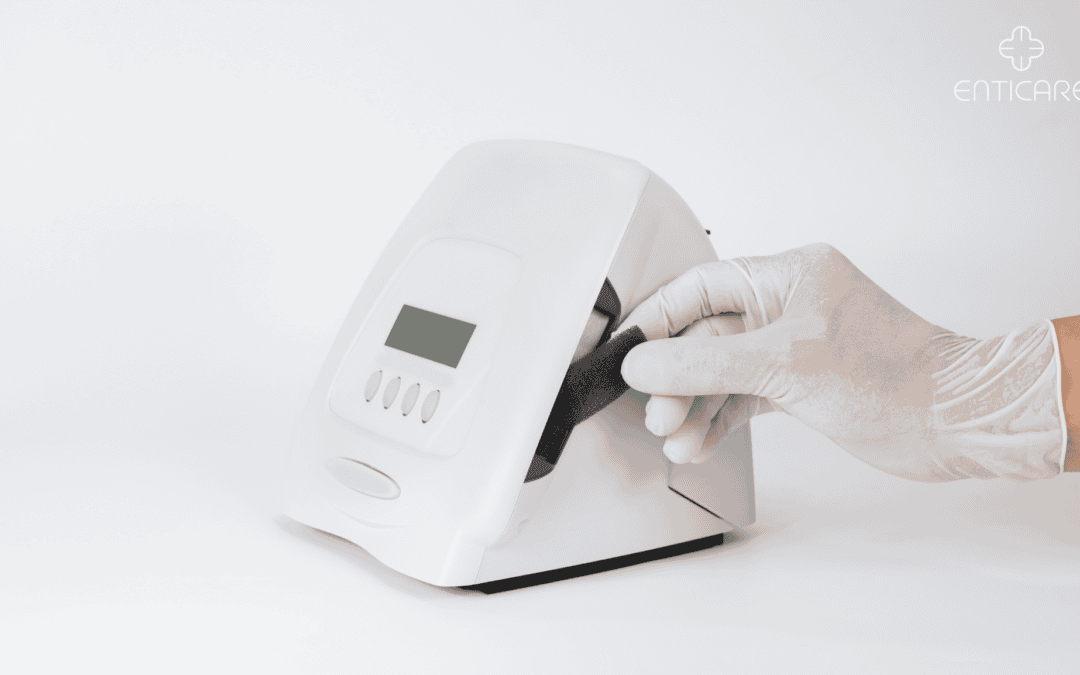Do you wake up gasping for air in the middle of the night? Does your sleep feel constantly disrupted, leaving you exhausted during the day? If you answered yes, you might be living with sleep apnea, a serious sleep disorder characterized by breathing pauses or shallow breathing during sleep.
If you’ve been diagnosed with sleep apnea, your doctor likely prescribed a CPAP (Continuous Positive Airway Pressure) machine. This machine delivers a constant flow of air through a mask to keep your airway open while you sleep. While CPAP therapy can be life-changing for many, a crucial question arises: How often does insurance cover a CPAP machine replacement?
This blog delves into the world of CPAP insurance coverage, exploring the typical replacement timeframe, factors influencing coverage, and additional considerations for maintaining a healthy sleep apnea treatment routine.
Imagine waking up feeling refreshed and energized each morning. Consistent CPAP therapy can be the key to achieving this dream. However, CPAP machines, like any other medical device, don’t last forever. Over time, they can wear out, become less effective, or malfunction entirely.
Here’s why a functioning CPAP machine is vital:
- Maintaining Treatment Efficacy: A worn-out CPAP machine might not deliver the optimal air pressure needed to keep your airway open, leading to disrupted sleep and potential health risks.
- Ensuring Comfort: A malfunctioning machine can become noisy, uncomfortable, or leak air, hindering your ability to get a good night’s sleep.
- Hygiene Concerns: Regularly replacing filters and cleaning your CPAP equipment is essential to maintain hygiene and prevent the growth of bacteria.
Knowing when to replace your CPAP machine is crucial for maintaining your sleep apnea treatment and overall health. Luckily, most insurance companies offer coverage for CPAP replacements, but the frequency varies depending on specific plans and policies.
Here’s a general idea of the typical replacement timeframe:
- 3-5 Years: This is the most common range for insurance coverage on CPAP replacements.
- Medical Necessity: Some insurance companies might require documentation from your doctor demonstrating the need for a replacement due to wear and tear or malfunction.
However, this is just a starting point. Here are some additional factors that can influence insurance coverage for CPAP replacements:
- Specific Insurance Plan: The details of your specific insurance plan ultimately determine the coverage you receive. It’s best to contact your insurance provider directly to understand their specific policy on CPAP replacements.They can answer questions about:
- Frequency: How often your plan covers replacements.
- Coverage: Whether the replacement includes the entire machine, specific parts, or both.
- Deductible and Copay: The amount you might need to pay out-of-pocket before insurance kicks in.
- Documentation Requirements: Some insurance companies might require a sleep study or doctor’s note to justify a replacement.
Here’s how you can take action to ensure you’re getting the most out of your CPAP insurance coverage:
- Review Your Insurance Plan: Dig into the details of your insurance plan to understand your coverage specific to CPAP replacements.
- Contact Your Insurance Provider: Don’t hesitate to call your insurance provider and ask questions. They can clarify coverage details, specific requirements for replacement, and any potential out-of-pocket costs.
- Maintain Regular Checkups: Schedule regular checkups with your doctor to monitor your sleep apnea and the effectiveness of your CPAP therapy. They can provide documentation if needed for an insurance-covered replacement.
- Practice Good CPAP Hygiene: Regularly clean and replace filters to maintain optimal CPAP function and potentially extend its lifespan.
While insurance coverage is a big factor, prioritizing your health and sleep quality is paramount. Don’t hesitate to address any concerns you have about your CPAP machine with your doctor.
By understanding your insurance coverage and taking proactive steps, you can ensure your CPAP therapy remains effective and contributes to a restful night’s sleep. Sweet dreams! And if you have any questions, don’t hesitate to contact Enticare or call us at 480-214-9000, our expert team is here to assist you every step of the way.

